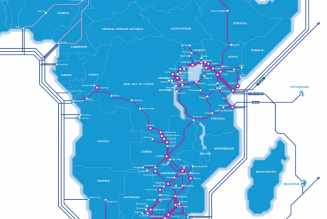In Africa, various jurisdictions have data protection laws to secure the transfer of personal data between entities. These laws largely affect multinational companies that do international trade.
Organizations with a global footprint require personal data transfer across countries, and these data protection laws must be complied with to transfer data across borders legally.
Organizations around the world are increasingly investing in the African market. To lawfully carry out business operations in Africa, it is imperative for organizations to understand the data protection landscape in Africa.
Data protection laws are proposed by governments not to hinder personal data transfer by organizations but to regularize how organizations handle personal data. These laws aid in setting the required compliance standards and protecting the data subject’s right to share their data.
The Facebook-Cambridge Analytica data scandal was a wake-up call for businesses around the world. Cambridge Analytica was able to exploit the personal data of millions of users due to the lack of data protection laws in the countries it operated in.
Only a few countries in Africa have data protection laws, like Zimbabwe, Kenya, and Uganda, but the enforcement of these laws has not been effective. Some countries are in the process of proposing a data protection law, and others don’t have any plans to do so.
To overcome the compliance challenges faced by organizations carrying out their business operations in Africa, it is important to understand how a data protection law is drafted, especially in Africa.
Some common data protection principles such as consent, data retention, data deletion, and the use of data breach notifications are usually drafted into data protection laws. These key principles have to be complied with in order to do business in Africa. Some countries in Africa, such as Ghana, South Africa, and Lesotho, do not require personal data breach notifications to be sent to the data subject. However, it is considered a best practice to do so.
It is essential to understand data protection laws in Africa to transfer personal data across borders securely, especially when you are investing in an African business or considering doing business in Africa. Additionally, when an organization values privacy, it will attract high-quality stakeholders and business partners.
ManageEngine‘s comprehensive suite of IT management solutions includes tools for IT service management, operations management, Active Directory management, IT security, analytics, and endpoint management to help fight internal and external threats, prevent data leaks, and meet compliance standards. African organizations can also use ManageEngine solutions to secure their personal data transfers and improve business operations overall.
By Staff Writer.











Tagged: Cambridge Analytica, Consent to use personal data, Data breach notifications, Data deletion, data leaks, data protection, data protection laws, Data protection laws in Africa, Data retention, Facebook-Cambridge Analytica data, IT, IT management, IT News, IT Security, Multinational Companies, Personal Data, Personal data transfer, Security, Sponsored, tech news, technology